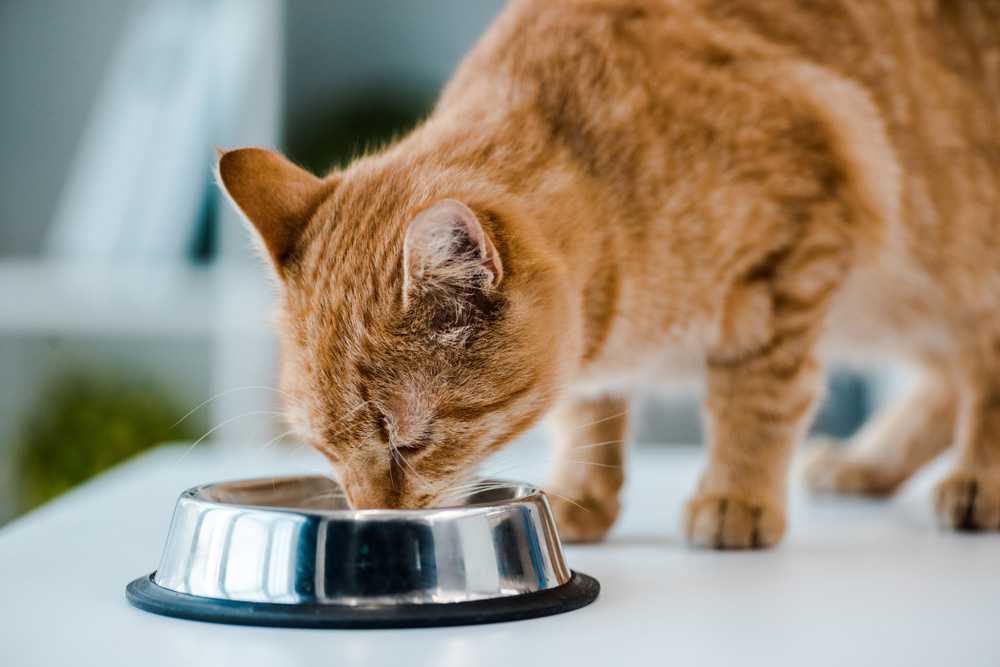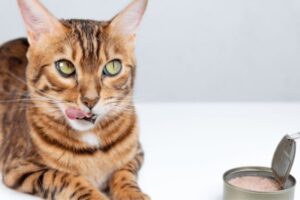Introduction to Essential Nutrients for Cats
Cats, like all living beings, require a variety of essential nutrients to thrive and maintain optimal health. Just like humans, cats need a balanced diet consisting of proteins, fats, carbohydrates, vitamins, minerals, and water. In this article, we’ll delve into the importance of each of these nutrients and how to ensure your feline friend gets everything they need to live a long, healthy life.
Protein: The Building Block of Feline Health
Importance of protein in a cat’s diet
Proteins are crucial for cats as they provide the building blocks for muscle growth, tissue repair, and overall body maintenance. Cats are obligate carnivores, meaning they require a high amount of animal-based protein in their diet to thrive.
Best sources of protein for cats
Quality sources of protein for cats include meat, poultry, fish, and eggs. These animal-based proteins contain essential amino acids that cats cannot produce on their own, making them vital for their health.
Fats: Energy and More
Role of fats in a cat’s diet
Fats serve as a concentrated source of energy for cats and play a crucial role in maintaining healthy skin and coat, supporting immune function, and aiding in nutrient absorption.
Healthy sources of fats for cats
Healthy fats for cats include animal fats, such as chicken fat and fish oil, which provide essential fatty acids like omega-3 and omega-6, necessary for their well-being.
Carbohydrates: Not Just Fillers
Do cats need carbohydrates?
While cats are not obligate carbohydrate consumers, small amounts of carbohydrates can be beneficial in their diet, providing energy and fiber.
Suitable sources of carbohydrates for cats
Cats can obtain carbohydrates from ingredients like rice, corn, and vegetables. However, it’s essential to ensure that carbohydrates make up only a small portion of their diet.
Vitamins: Supporting Overall Health
Key vitamins for cats and their functions
Vitamins such as A, D, E, and B complex vitamins are essential for maintaining vision, bone health, immune function, and overall well-being in cats.
Natural sources of vitamins for cats
Cats can obtain vitamins from a balanced diet that includes a variety of meats, fruits, and vegetables. However, supplementation may be necessary in some cases to ensure adequate intake.
Minerals: Essential for Vital Functions
Essential minerals for cats and their benefits
Minerals like calcium, phosphorus, potassium, and magnesium are vital for maintaining strong bones, healthy teeth, and proper muscle function in cats.
How to ensure adequate mineral intake in cats
Feeding a balanced diet that includes meat, bones, and organs can help ensure cats receive the necessary minerals. Additionally, mineral supplements may be recommended in certain situations.
Water: The Ultimate Nutrient
Importance of water for cats
Water is essential for cats to regulate body temperature, aid digestion, and eliminate waste products from the body. Dehydration can lead to serious health problems in cats, so it’s crucial to ensure they have access to fresh, clean water at all times.
Ensuring proper hydration in cats
Encouraging cats to drink water by providing multiple water bowls throughout the house, using water fountains, and offering wet food can help maintain proper hydration levels.
Taurine: A Vital Amino Acid
Role of taurine in feline health
Taurine is an amino acid that is essential for cats’ heart health, vision, and reproductive function. Unlike some other animals, cats cannot synthesize taurine on their own, so it must be provided through their diet.
Taurine-rich foods for cats
Meat, particularly muscle meat, is a rich source of taurine for cats. Commercial cat foods are typically fortified with taurine to ensure cats receive an adequate amount in their diet.
Omega-3 and Omega-6 Fatty Acids: Skin and Coat Health
Benefits of omega-3 and omega-6 fatty acids for cats
Omega-3 and omega-6 fatty acids play a crucial role in maintaining healthy skin and coat, reducing inflammation, and supporting heart health in cats.
Sources of these fatty acids for cats
Fatty fish like salmon, trout, and mackerel are excellent sources of omega-3 fatty acids for cats. Omega-6 fatty acids can be found in plant oils like flaxseed oil and sunflower oil.
Feeding Your Cat a Balanced Diet
Understanding the concept of a balanced diet for cats
A balanced diet for cats includes a mix of protein, fats, carbohydrates, vitamins, minerals, and water in the right proportions to meet their nutritional needs.
Practical tips for feeding a cat a balanced diet
Feed your cat high-quality commercial cat food that is formulated to meet their nutritional requirements. If feeding homemade food, consult with a veterinarian or animal nutritionist to ensure it meets all of your cat’s needs.
Common Nutritional Deficiencies in Cats
Signs of nutritional deficiencies in cats
Symptoms of nutritional deficiencies in cats may include poor coat condition, weight loss, lethargy, and digestive issues. Regular veterinary check-ups can help detect and address any deficiencies early on.
How to address and prevent deficiencies
Ensuring your cat’s diet is balanced and complete is the best way to prevent nutritional deficiencies. If deficiencies are detected, your veterinarian may recommend dietary changes or supplementation.
Special Dietary Needs for Different Life Stages
Nutritional needs of kittens
Kittens have unique nutritional needs for growth and development, including higher protein and calorie requirements. Feed them a kitten-specific diet until they reach adulthood.
Nutritional requirements for senior cats
Senior cats may have decreased appetite and dental issues, so it’s essential to provide them with a diet that is easy to chew and digest. Senior cat foods are formulated to meet their specific needs.
Health Conditions and Nutritional Support
How nutrition can support cats with health issues
Certain health conditions, such as kidney disease, diabetes, and allergies, may require dietary modifications to manage symptoms and improve quality of life in cats.
Dietary considerations for specific health conditions
Consult with your veterinarian to develop a nutrition plan tailored to your cat’s specific health needs. This may include prescription diets, supplements, or homemade recipes.
Commercial vs. Homemade Diets: Making the Right Choice
Pros and cons of commercial cat food
Commercial cat food offers convenience and is formulated to meet cats’ nutritional needs. However, some products may contain fillers and artificial additives.
Tips for preparing homemade cat food safely
If opting for a homemade diet, ensure it is balanced and complete by following recipes formulated by veterinary nutritionists. Be cautious of potential food safety risks and consult with a professional.
Conclusion
Ensuring your cat receives the essential nutrients they need is vital for their overall health and well-being. By providing a balanced diet that includes high-quality protein, fats, carbohydrates, vitamins, minerals, and water, you can help your feline friend live a long and healthy life.
FAQs
- How do I know if my cat’s diet is balanced? A balanced diet should meet all of your cat’s nutritional needs based on their age, weight, and health status. Consult with your veterinarian if you’re unsure.
- Can I feed my cat a vegetarian or vegan diet? Cats are obligate carnivores and require nutrients found only in animal products, so a vegetarian or vegan diet is not recommended unless under strict veterinary supervision.
- Should I give my cat supplements? In most cases, a balanced diet should provide all the nutrients your cat needs. However, your veterinarian may recommend supplements in certain situations, such as for joint health or skin conditions.
- How can I transition my cat to a new diet? Gradually introduce the new food over the course of a week by mixing it with the old food, gradually increasing the ratio of the new food to the old.
- Is it okay to feed my cat table scraps? While small amounts of certain human foods may be safe for cats, many are toxic or can cause digestive upset. It’s best to stick to cat-specific foods to ensure they get the nutrients they need.

